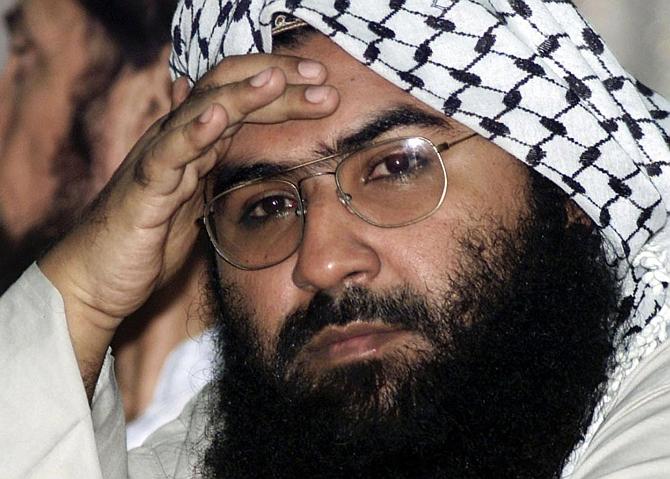In a rare dissent against official policy, a former Chinese diplomat who served in India has sought change in China's repeated efforts to block India's bid to slap a United Nations ban on Jaish-e-Mohammad leader Masood Azhar arguing that he is a terrorist and Beijing should "adjust" its stand accordingly.

In his lengthy blog on social media WeChat public account about the India-China stalemate over Azhar, Mao Siwei -- who previously served as China's Consul General in Kolkata -- said China should take advantage of India's complaint against Azhar and "get rid of the passive diplomatic situation" between the two countries.
The blog published on December 28, two days before China refused to lift its technical hold on India's application, allowing it to lapse, Mao highlighted the history of Pakistan-based terror organisations Lashkar-e-Taiba and Jaish-e-Muhammad and how they carried out violent attacks whenever India and Pakistan made efforts to normalise their relations.
Referring to the Indian evidence furnished against Azhar in Pathankot terror attack, he cited the chargesheet that the evidence included Facebook and telephone records as well as DNA samples through food wrapping paper and walkie-talkie.
"In the light of the above, I deeply feel that now is the time China should take India's complaint as an opportunity to seriously study and adjust the position, get rid of the passive diplomatic situation, on the listing of JeM chief in the (UN) 1267 list," he wrote.
"First, is Azhar a terrorist? Second, was the Pathankot attack perpetrated by the Jaish-e-Mohammed group? To the first question, the answer should be yes," he said.
Though his appeal went unheeded, it reflected a different opinion among sections of China's diplomatic community which is concerned over the negative fallout of the issue on India-China ties and Beijing's claims that it followed a "very objective, just and professional attitude" in blocking India's application at the UN.
Responding to remarks made by External Affairs Minister of State M J Akbar on the Azhar issue, Chinese Foreign Ministry spokesman Geng Shuang told reporters in Beijing said on Thursday that "we have taken a responsible and constructive part in relevant discussion in a professional and objective way".
His comments are a rare instance of public expression of differing opinions in China.
"As a result of (China's technical hold), the issue of sanctions against Azhar became a major issue affecting Sino- Indian relations and constitutes an important factor for the decline of Sino-Indian relations in 2016," Mao wrote.
He served as Consulate General of China's Consulate in Kolkata between 2007 to 2010. Before that, Mao also worked as a diplomat in Chinese Embassy in New Delhi and served as a visiting scholar at JNU, Delhi.
In his blog, Mao said "the timing of Pathankot attack has a special meaning" because before that Indian Prime Minister Narendra Modi visited Lahore suddenly to greet his Pakistan counterpart Nawaz Sharif on his birthday and to attend his grand-daughter's wedding.
"The visit was likely to turn around (India-Pak ties). However, only a week later, Pathankot attack occurred, and the process of reconciliation died without (even) starting between India and Pakistan. The incident once again proved the ability of Pakistani non-governmental armed groups to influence the relations between both the countries," he said.
He also highlighted how 9/11 Mumbai terror attack by Lashkar-e-Taiba also disrupted progress in India-Pakistan relations and how China blocked efforts to bring about a UN ban on LeT and its leaders.
Citing media reports, he said the United States, Britain and France proposed in 2006 and 2008 that Pakistan's Jamaat-ud-Dawa and its leader Hafiz Saeed were included in the UN list of 1267 and referred to China blocking the move on the grounds of "insufficient evidence". But after the 9/11 Mumbai terror attacks, China has not blocked requests when they came up before the 1267 committee.
"In this case, China no longer blocked, December 10, 2008, Jamaat-ud-Dawa and its "Loyalist" political leader Hafiz Saeed, Zaki-ur Rehman Lakhvi and other four people were included in the list," Mao said.
He also listed the history of Azhar, including his capture in Jammu and Kashmir by Indian police and later his escape following hijacking of an Indian Airlines plane in 1999 which was diverted to Kandahar in Afghanistan, to back his stand.






 © 2025
© 2025